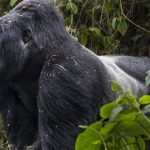Described as the Spokesman of Africa, Milton Obote is well remembered for his oratory guineas. Level headed, determined, with a record of solid achievements behind him, Apollo Milton Obote exhibited all the attributes of a leader from the time he plunged himself in politics in the early ’50s.
Working hard in the shadow of Uganda’s political glamour, the pipe-smoking politician from a small Akokoro village in the then Lango District in northern Uganda, consistently worked his way to the top and became the President of a forceful political part the Uganda Peoples Congress which won the general election in 1962 and thereby Obote became the Prime Minister of Uganda.
At every stage Obote seems to have outmaneuvered the various tribal and political forces ranged against him. Obote succeeded largely by diplomacy and persuasion. Obote derived his political skillfulness from a careful study of the Baganda and all the people of Uganda. He studied and exploited their weakness and limitations such as their political rivalries and religious differences. He then used them to help him on his way to achievement power.
Obote’s skillfulness was to be exhibited during the London Conference when the Baganda formed a political organization called Kabaka Yekka. Knowing its possible influence on the Uganda’s political system, Obote used his fellow northerner, Daudi Ochieng to negotiate with the Mengo traditionalists. Ochieng a former schoolmate of the Buganda Kabaka Muteesa II had now become a Kabaka Yekka MP, called it the negotiations “bridging the gap”.
Finally it seemed that a major crisis broke out that the center could not hold. On April 15th 1962, Obote abrogated the constitution, removed all powers from the Kabaka’s government and on May 24th the same year, the Kabaka’s Palace at Mengo hill was attacked sending the Kabaka into exile and marking the end of a long traditional monarchy unceremoniously.
While attending a Commonwealth Summit Conference in Singapore, Obote was overthrown by his own Army Commander Idi Amin on January 24th 1972. Obote was to stay in exile in Tanzania for eight years until a combined force of Uganda exiles and Tanzanian army flushed Amin out Uganda.
Typical of Obote’s skillful maneuvers, he was installed as President for the second time (Obote II) on December 15th 1980 after a general election in which his party UPC was declared winner.
Due to the alleged election rigging by Obote, several former anti Amin liberators led by Yoweri Museveni ( Former Minister in post Amin government) fled to the bushes of Luwero in Buganda and started mounting a guerilla war against Obote’s regime.
As the guerrilla raged on so did the tribal conflicts within the Obote army between the Acholi and the Langis. These squabbles reached their climax on June 1985 when Brigadier Bazilio Okello and Acholi announced the overthrow of Obote’s regime and by so doing, bringing to an end Obote’s political legacy. Obote fled to Nairobi and later in Zambian capital Lusaka where he still wields enormous might on his fragmented party the UPC.
Even after ascending to power, Obote’s suspicion of the Baganda never ceased, in fact it was heightened by the conflicting roles and status accorded to the the Kabaka in a post independence Uganda.
Politics of Uganda – Obote’s Political Showdown
The tension started building between both within the UPC, and between the central government and Buganda kingdom, until the final blow came in 1966. In February, while Obote and nine other cabinet ministers were touring the northern region, senior government figures – most notably Grace Ibingira – set out to stage a ” palace revolution “.
The plotters rekindled a 1965 allegation that Prime Minister Obote, Defence Minister Felix Onama, and deputy commander of the army Colonel Idi Amin were involved in smuggling from Zaire (now DRC). They had the National Assembly pass a resolution bitterly attacking Obote’s leadership. Only one government MP, John Kakonge voted against the motion.
At the same time troop movements and other counter-movements, began in Kampala. The chief of staff, Brigadier Opolot, had been requested to intervene on the side off the plotters should the parliamentary option misfire. The Kabaka, one of the leaders of the anti-Obote forces, had reportedly requested military assistance from Britain.








